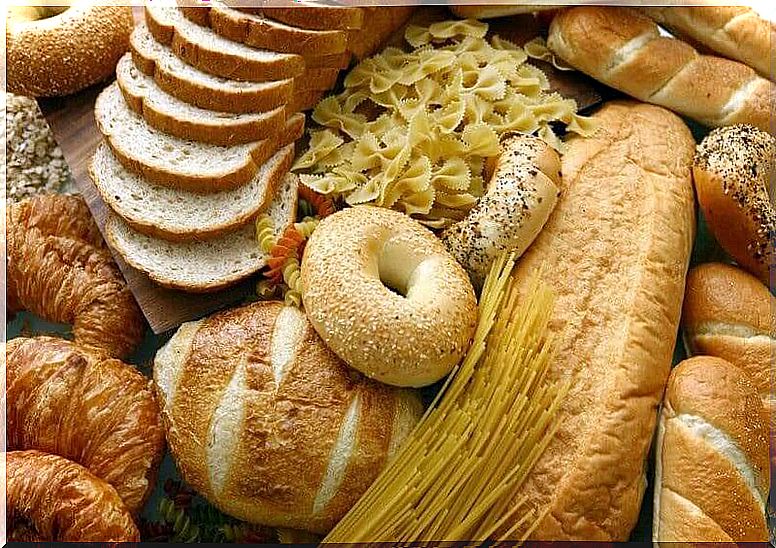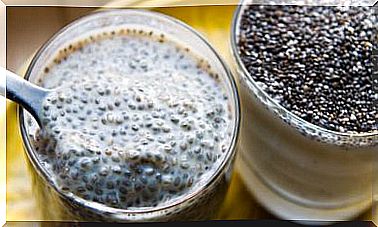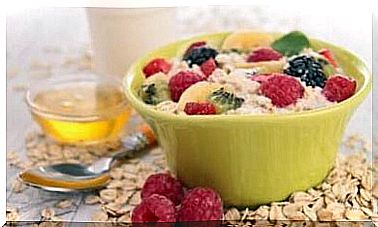Does Your Diet Really Contain Enough Fiber?
Dietary fiber serves the healthy intestinal bacteria as food and thus improves the intestinal microbiota. But are you actually consuming enough fiber? Find out more about this topic today.

Dietary fiber is essential for intestinal health. They are closely related to the diversity of the intestinal microbiota and to short-term and long-term precautions against various complex diseases. That is why it is very important to consume sufficient fiber every day !
Dietary fiber reduces the chances of developing type 2 diabetes. This is confirmed, among other things, in a study published in the journal Nature Reviews Endocrinology . The scientific literature also associates the consumption of fiber with a longer feeling of satiety.
So you can do without unhealthy snacks in between meals and reduce the risk of overweight or obesity. Are you sure you are getting enough fiber through your diet? Today we invite you to learn more about this topic.
Get enough fiber through your diet
Whole grain products, fruit and vegetables contain important fiber and should therefore be on the menu on a regular basis. They are particularly recommended for certain intestinal diseases.
However, the modern diet contains many white flour products, which lose a large part of the dietary fiber during industrial production. In addition, many resort to ready-made fruit juices instead of eating the whole fruit, which contains far more fiber. This is because most of these are lost during processing into juice.
For this reason , the regular consumption of raw fruit and vegetables is recommended, which can replace unhealthy snacks in between or be served as a side dish in the form of a salad with main meals.

Sufficient fiber for constipation
Dietary fiber improves intestinal transit and stool volume. At the same time, they promote motility and thus defecation. If you are constipated, it is therefore advisable to switch to whole grain products.
The fiber often ferment in the intestine, which has a positive effect on the intestinal microbiota and improves its health. The helpful bacteria in the intestine are part of the immune system and protect against numerous diseases.
They are even associated with mental health and are said to reduce the risk of depression. They are also very important for the absorption of nutrients. A healthy intestinal flora is fundamental in the prevention of diarrhea, constipation and flatulence.
It is particularly important to avoid industrially manufactured products
Industrially manufactured products contain large amounts of simple sugars and trans fats, but hardly provide any fiber. They can therefore change the intestinal microbiota to the detriment of health. This, in turn, could increase the medium- and long-term risk of complex diseases.
While carbohydrates are important for a healthy organism, it is best to eat fresh foods. Potatoes, whole grain rice, sweet potatoes, and other foods provide high quality carbohydrates with a low glycemic index while also providing you with vitamins and fiber.
But other foods, such as pasta or bread, made with white flour lack fiber and vitamins. Therefore , these foods can raise blood sugar levels and stress the pancreas as these carbohydrates are quickly absorbed.

Recommended daily amount of fiber
The World Health Organization (WHO) recommends consuming 25 to 30 g of fiber per day. This amount can be increased in the case of certain intestinal complaints or defecation problems.
Sometimes prebiotic supplements can be considered to ensure a healthy intestinal microbiota. Regular consumption of yogurt and high fiber foods form an important foundation for intestinal health and overall health.
Are you consuming enough fiber?
Since the modern diet in many cases contains numerous industrially manufactured products, we usually consume less than the recommended amount of fiber. So the general recommendation is to include more whole grains, fruits, and vegetables in your diet to improve bowel functions.
However, we emphasize the need for a balanced and varied diet that should contain all nutrient groups. In addition, regular exercise and adequate water are two other pillars of good health.









